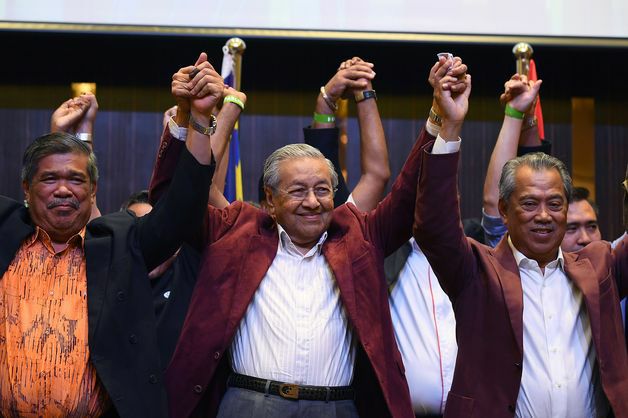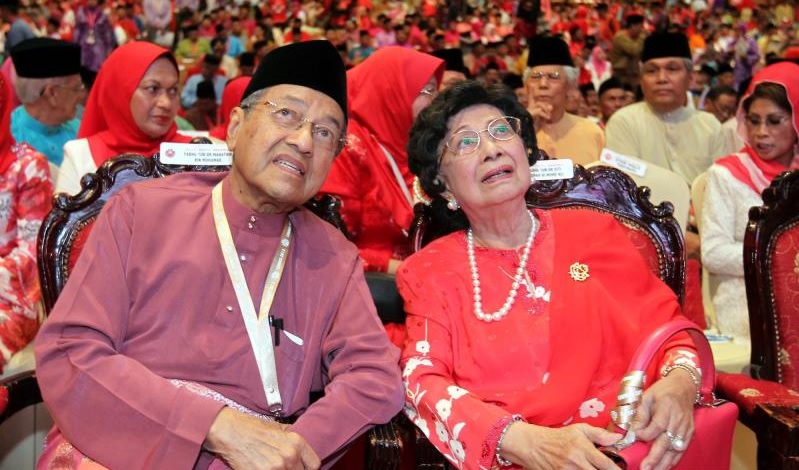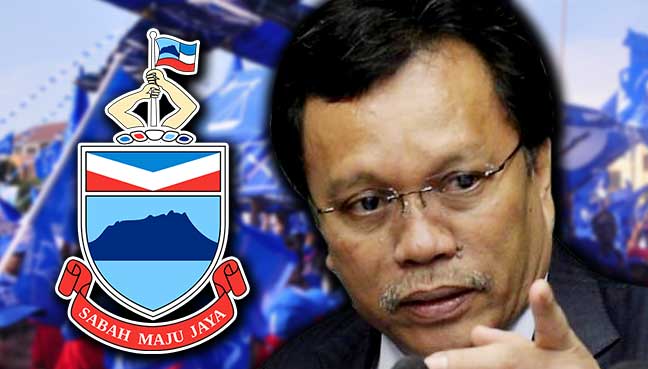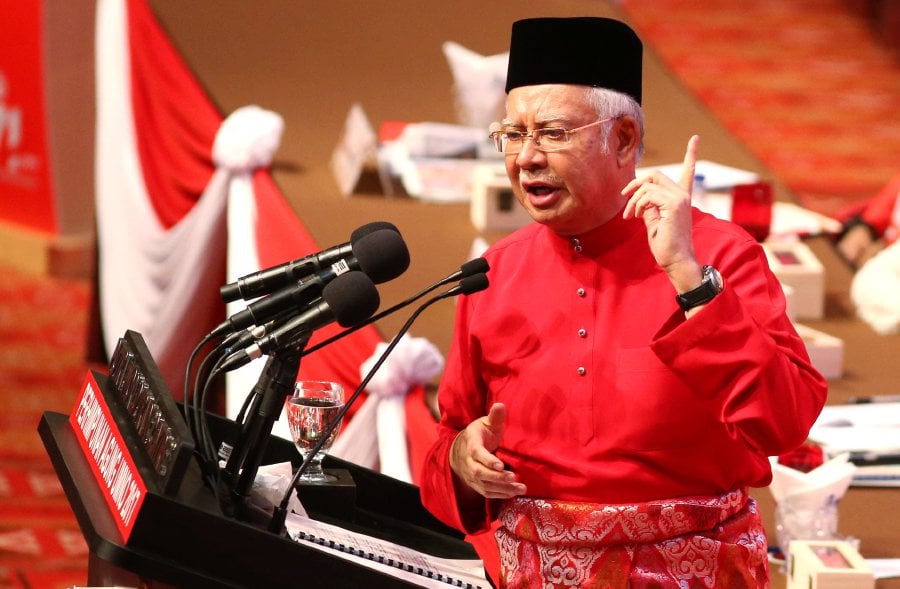June 11, 2018
Looking Back in Time: Malaysia’s Hibiscus Revolution that brought Najib’s Political Demise
by Joseph Chinyong Liow (
https://www.brookings.edu/opinions/power-plays-and-political-crisis-in-malaysia/
Malaysia’s Hibiscus Revolution started in November, 2007
Read : http://www.thehindu.com/opinion/op-ed/malaysias-hibiscus-revolution/article2227370.ece
Dark clouds have gathered over Malaysia as a crisis deepens. Two weeks ago, the country witnessed a massive street protest – dubbed Bersih (lit: “clean”) – organized by a network of civil society groups agitating for electoral reform. This was in fact the fourth iteration of the Bersih protests (Bersih also mobilized in 2007, 2011, and 2012), and managed to draw tens of thousands of participants (the exact number varies depending on who you ask). On this occasion, the protest was a culmination of widespread popular indignation at a scandal involving 1MDB, a government-owned strategic investment firm that accrued losses amounting to approximately USD10 billion over a short period of time, and the controversial “donation” of USD700 million funneled to the ruling party through the personal bank accounts of Prime Minister Najib Tun Razak.

All this is taking place against an inauspicious backdrop of sluggish economic growth, the depreciation of the Malaysian currency, and several exposes on the extravagant lifestyle of Najib’s wife, Rosmah Mansor.
How consequential was Bersih?
Read: https://dinmerican.wordpress.com/category/ge13/page/9/
When Bersih first mobilized in 2007, it managed to harness a flood of dissatisfaction in opposition to the government of Abdullah Badawi, and contributed to major opposition political gains at the general election of 2008.
The second and third protests have also been credited as contributing factors to further opposition inroads at the 2013 polls. Assessments of the latest iteration of Bersih however, have been more equivocal. On the one hand, Bersih 4.0 indicated that the movement can still draw huge crowds and give voice to popular discontent, which continues to grow. On the other hand, analysts have called attention in particular to the comparatively weak turnout of ethnic Malays at Bersih 4.0 compared to the previous protests. This is a crucial consideration that merits elaboration if Bersih is to be assessed as an instrument for change.
Given how Malaysian politics continues to set great store by ethnic identity, the support of the Malay majority demographic is integral for any social and political change to take place. By virtue of affirmative action, ethnic Malays are privileged recipients of scholarships and public sector jobs. Therein lies the problem for any social movement agitating for change. Years of conditioning through policy and propaganda have created a heavy reliance on the state, which in essence means UMNO (United Malays National Organisation), the dominant party in the ruling coalition which Prime Minister Najib helms as party president. While it is difficult to say conclusively that this explains the tepid reaction of ethnic Malays during the Bersih protests, it is not far-fetched to hypothesize that at least a contributing factor was the fear among recipients of scholarships and public sector employees that their benefits might be jeopardized (For example, I know that scholarship holders were sent letters “dissuading” them from participating in “political activities.”).
Ultimately though, the most telling feature of the event may not have been the dearth of ethnic Malays but the presence of one particular Malay leader – Mahathir Mohamad, Malaysia’s nonagenarian former Prime Minister and unlikely Bersih participant.
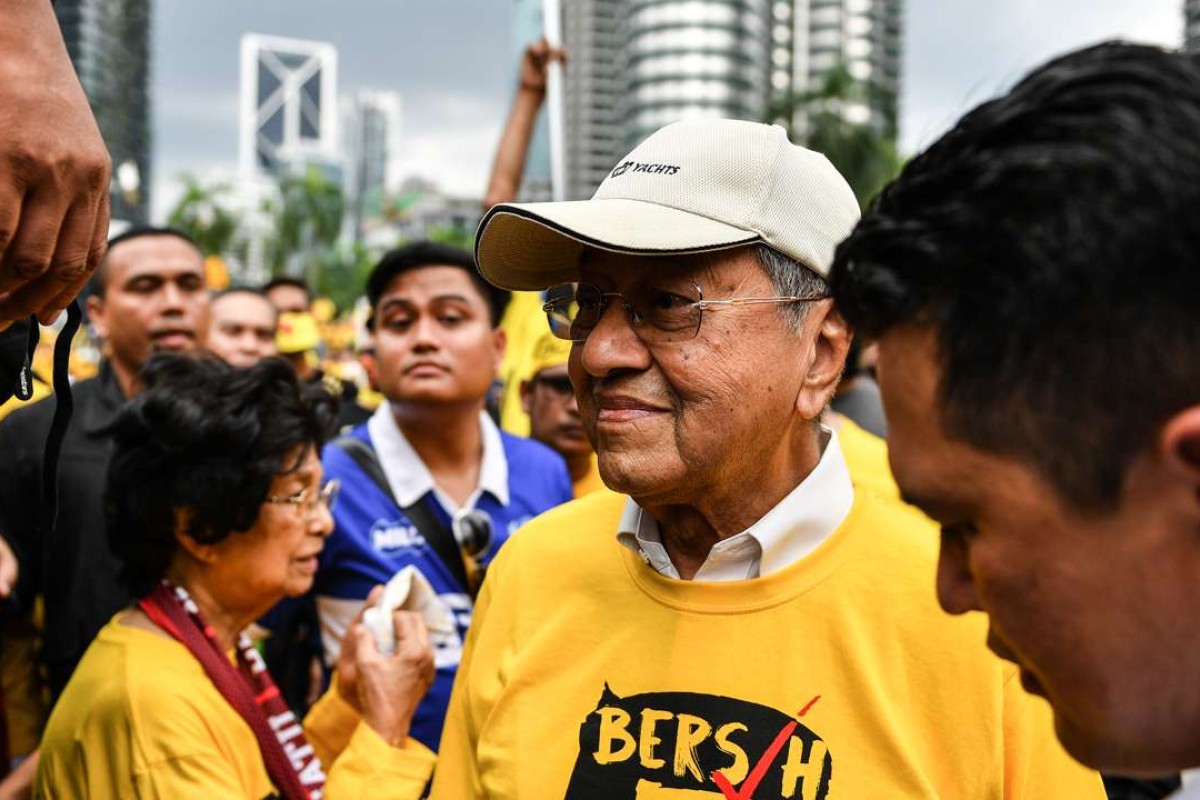
Dr Mahathir Mohamad–Malaysia’s Uber-Politician
Hitherto a supporter of Prime Minister Najib, Mahathir has grown increasingly unhappy with the Prime Minister’s policies. According to Mahathir himself, attempts had been made to share his reservations with Najib in private, but they were rebuffed. Going by this account, it is not surprising that Najib’s alleged snub prompted private reservations to crescendo into harsh public criticism.
By the middle of 2014, Mahathir had assumed the role of Malaysia’s conscience to become one of the loudest critics of Najib. Asked to explain his criticisms, Mahathir reportedly responded: “I have no choice but to withdraw my support. This (referring to the act of privately reaching out to Najib) has not been effective so I have to criticize. Many policies, approaches, and actions taken by the government under Najib have destroyed interracial ties, the economy, and the country’s finances.”[1]
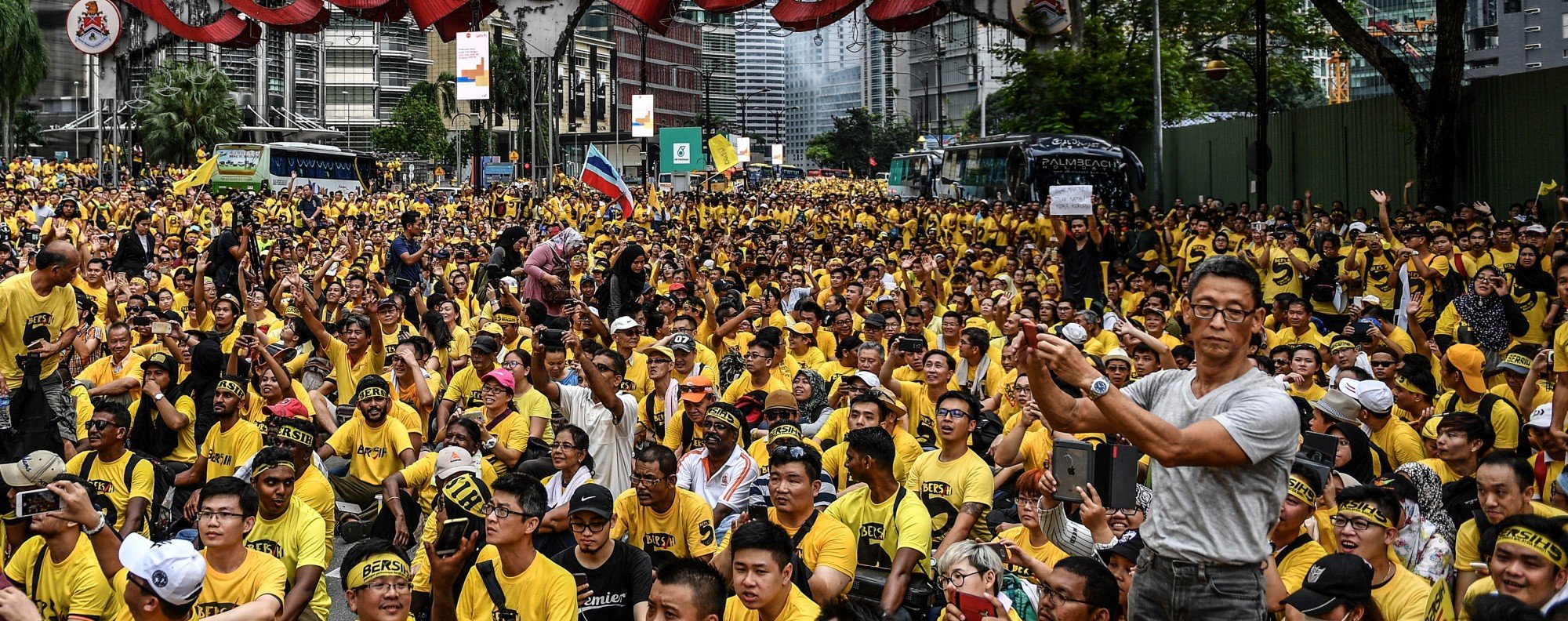
Today, it is Mahathir, Malaysia’s longest serving Prime Minister who was in office from 1981 to 2003, who is leading the charge to discredit Najib and have him removed from office for malfeasance. What explains Mahathir’s singleness of purpose to have Najib removed from power? Part of the answer may lie in Mahathir’s own record of political quarrels.
What lies beneath Mahathir’s attacks?
Mahathir is no stranger to bitter and bloody personal political battles. His interventions in Malaysian politics throughout his career in office are legion (and many Malaysians might also say, legendary). Longtime Malaysia watchers and critics have assailed Mahathir for his autocratic streak evident, for example, in how he emaciated the Judiciary by contriving to have supreme court judges (and on one occasion, the Lord President himself) removed from office, incapacitated the institution of the monarchy by pushing legislation that further curtailed the already-limited powers of the constitutional monarch, and suppressed opposition parties and civil society by using internal security legislation (and on one occasion, the Lord President himself) removed from office, incapacitated the institution of the monarchy by pushing legislation that further curtailed the already-limited powers of the constitutional monarch, and suppressed opposition parties and civil society by using internal security legislation against them.
Mahathir was no less ruthless within UMNO, where he brooked no opposition. The history of political contests in UMNO has his fingerprints all over it. In 1969, it was his provocations as a contumacious back bencher that precipitated the resignation of the respected founding prime minister of Malaysia, Tunku Abdul Rahman. In 1987, Mahathir weathered a challenge to his leadership of UMNO mounted by political rivals (the then Deputy Prime Minister, Musa Hitam, and Minister for International Trade, Razaleigh Hamzah), turned the tables on them, and had them exiled into political wilderness.
In 1998, Mahathir successfully fended off the ambitious Anwar Ibrahim by sacking him, and later having him arrested, charged, and eventually convicted for corruption and sodomy. Even when not directly involved, he was never content to be a bystander, choosing instead to either instigate or leverage power plays. In 1978, he played no small part in nudging Sulaiman Palestin to challenge then incumbent Hussein Onn for party presidency (a move that many Malaysian analysts agree signaled the beginning of the end for Hussein’s political career even though he managed to fend off Sulaiman’s challenge). In 1993, Mahathir did little to prop his then deputy, Ghafar Baba, who was crumbling under the challenge of a charismatic Malay nationalist and rising star by the name of Anwar Ibrahim. It was Mahathir’s machinations in 2008 that forced Abdullah Badawi, his handpicked successor no less, to resign a year later.
All said, Mahathir had accomplished the signal feat of being involved in some way or other in almost every political crisis that has beset UMNO since 1969. Several observations can be drawn from this record to explain Mahathir’s present behavior. First, Mahathir has long been possessed of a drive to be at the center of power in UMNO and Malaysian politics. Second, he is also in possession of an acute survival instinct that has enabled the über-politician to see off a string of challengers and ensured his political survival at the helm for 22 years. Finally, one can also plausibly surmise that at the core of his recent interventions is the desire – not unlike others who have held any high office for 22 years – to protect his legacy. Therein lie the rub, for it is not difficult to imagine that Mahathir might have deemed his legacy challenged by Anwar in 1998, ignored by Abdullah Badawi in 2008, and now, disregarded by Najib.
Will Najib survive?
A crucial factor that plays in this unfolding drama between two of Malaysia’s political heaveyweights – and which cannot be over-emphasized – is the fact that power in Malaysia ultimately lies in UMNO itself, sclerotic though the party may have become. It is on this score that Najib remains formidable, even for the likes of Mahathir.
Unlike Anwar, who was only a Deputy President when he launched his abortive attempt to challenge Mahathir in 1998 (for which he paid a heavy political and personal price), Najib enjoys the advantage of incumbency. Unlike Abdullah Badawi, who chose to remain quiescent when stridently attacked latterly by Mahathir, Najib has used the powers of incumbency adroitly to head off any potential challenge and tighten his grip on the party. He has done so by out-maneuvering pretenders (he removed his Deputy Prime Minister), sidelining opponents, and co-opting potential dissenters into his Cabinet. These divide-and-rule measures closely approximate what Mahathir himself had used to devastating effect when he was in power. For good measure, Najib has lifted a few additional moves from Mahathir’s own playbook: he has neutralized legal institutions, hunted down whistle blowers, brought security agencies to heel, and shut down newspapers and periodicals that have criticized him. Najib’s consolidation of power has been aided by the fact that there is at present no alternative leader within UMNO around whom a sufficiently extensive patronage network has been created. It bears repeating that the arid reality of Malaysian politics is that power still lies within UMNO, so he who controls the party controls Malaysia. On that score, even if Najib’s credibility is eroding in the eyes of the Malaysian populace, within UMNO his position does not appear to have weakened, nor does he seem to be buckling under pressure.
There are no signs that the enmity between the current and former Prime Ministers of Malaysia will abate anytime soon. Given the stakes, the depths to which ill-will between both parties now run, and how far the boundaries have already been pushed, the rancor is likely to intensify. Mahathir still commands a following especially online where his studied blog musings on www.chedet.cc, a key vehicle for his unrelenting assaults on Najib’s credibility, remain popular grist for the ever-churning Malaysian rumor mill. In response, Najib has defiantly circled the wagons and tightened his grip on levers of power. While Mahathir is unlikely to relent, the reality is that the avenues available to him to ramp up pressure on Najib are disappearing fast. A recent UMNO Supreme Council meeting that was expected to witness a further culling of Najib’s detractors and Mahathir’s sympathizers turned out to be a non-event and an endorsement of the status quo. In the final analysis then, it is difficult to see Mahathir ultimately prevailing over Najib, let alone bend the sitting prime minister and party president to his will.
[1] “Dr. Mahathir Withdraws Support for Najib Government,” The Malaysian Insider, August 18, 2014. http://www.themalaysianinsider.com/malaysia/article/dr-mahathir-withdraws-support-for-najib-government.



